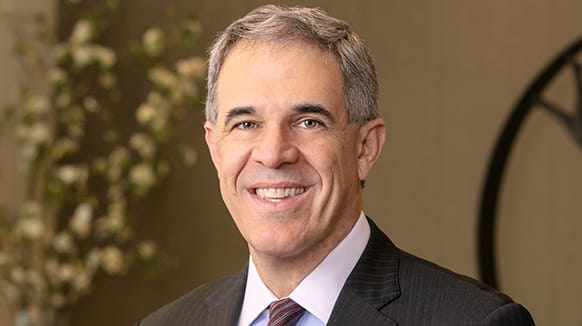Haynes Boone Partner Larry Pascal and Foreign Associate Natalia Cosio Ondiviela participated in a Q&A with Latin America Energy Advisor about Mexican President Andrés Manuel López Obrador’s new bill giving 54 percent of the electricity market to state-owned utility Federal Electricity Commission, the likelihood of it passing, and the potential impact on Mexico’s power sector if it does pass.
Below is an excerpt:
Q: Mexican President Andrés Manuel López Obrador on Sept. 30 sent lawmakers a bill that would guarantee 54 percent of the electricity market to state-owned utility Federal Electricity Commission, or CFE, a move he says would keep prices low for consumers and end special treatment for private power firms. The legislation would also reportedly reserve any future mining of lithium for the state as well as transfer independent energy regulators’ functions to the CFE and the Energy Ministry. How likely is Mexico’s Congress to approve the reform, and what would its main effects be on the country’s power sector and for consumers in particular? Why is López Obrador pushing for the changes, and would the move strengthen the energy sector as he envisions? To what extent are the proposed changes in violation of the United States-Mexico-Canada Agreement, or USMCA, and the country’s commitments under the Paris Agreement, and could it lead to international arbitration against Mexico?
A: Larry B. Pascal, member of the Energy Advisor board, and Natalia Cosio, both attorneys in the international practice of Haynes Boone: “A constitutional amendment requires approval of a two-thirds majority in both houses and a simple majority of all state legislatures. Given the level of the Morena party’s participation at the federal and state levels it is feasible that the energy reform passes if President López Obrador obtains the support of other parties, in particular the PRI, at both levels of government. The reform provides that CFE will be the sole authority responsible for the national electricity system and will be the exclusive power supplier for end users, with the ongoing mandate to supply at least 54 percent of the national power demand. Furthermore, the reform contemplates the cancellation of all power generation permits and those that are pending resolution, all power purchase agreements (PPAs) executed by private companies with CFE and all Clean Energy Certificates (CELs). Overall, the reform would limit free-market competition and private investment in the power sector. The reform would also eliminate the Mexican Energy Regulatory Commission (CRE) and would integrate CENACE, the Mexican grid operator, into CFE. Thus, CFE would also become the sector regulator with authority to set the rates for transmission, distribution and end users. The reform would likely result in claims from affected private investors under the USMCA. As to the Paris Agreement, it may prove more difficult for Mexico to meet its emissions reduction goals under the treaty to the extent renewable power generated by private investors is replaced with CFE power, which is more carbon-based.”
To read the full article, click here. (Pages 1 and 3)
